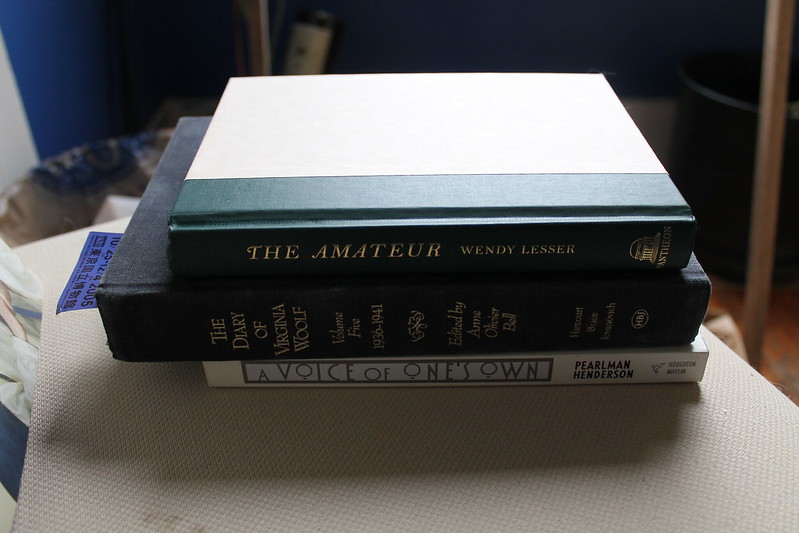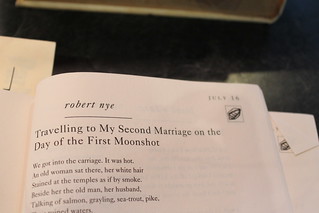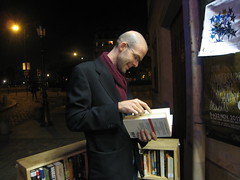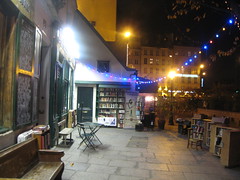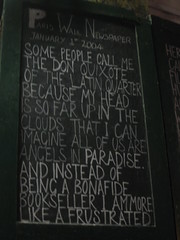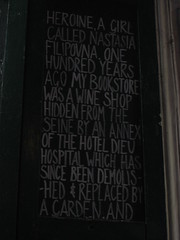I take my direction from the “new and selected” subtitle of Eleanor Wilner’s Reversing the Spell to discuss two of her poems, now both selected, neither new as time adds ring after ring even to the tree of a page printed in 1998.
“Never Apologize for Poetry” was originally published in Sarah’s Choice in 1989. It may appear to be an easy poem to open with, a poem for poets—and in one sense it is, for Wilner writes early on:
gives tongue. And when we say, “I, too, hate
poetry,” it is not modesty forbids
the brag of art, but this abundant
wily earth our words must fail.
But that choice of line break separating “hate” and its direct object comes out of the earlier lines, the opening lines that do not begin in a workshop, a poetry reading, anything limp and academic, but the “cunning spiral of a snail” and the falling water whose beauty “beggars speech”. It is a line break that makes you pause even as you rush over the falls with it, headlong into the direct object, wondering about the inclusivity of hate, extending far beyond poet vs non-poet to the whole human world. That whole line taken as one (while simultaneously three bits—end to the previous sentence, preface to quotation, beginning of quotation—) works as one, a meditation on speech from three different angles.
But it is not simply that we hate, it is that we hate poetry, a sitting duck waiting to bite a bullet no matter the metaphor used. And Wilner turns that twice: first, giving our hatred the benefit of the doubt, we might do it because no poem is ever as good as we might like. But that second turn opens out the issue into the universe: we hate poetry because our words will never be good enough. Standing before the Hallmark cards, even the non-poet has felt that, searching for someone else to have gilded the words we wish we could come up with to express the maelstrom inside.
The poem does take a side step into literary device:
here the trope must fail before
the fox, who suddenly gets up, swerves out
of our conceit…
but how is it then we end the poem “joyful and assured of our defeat”? That is why you read Wilner.
“Sunflowers, Repossessed” emphasizes how you never know where a Wilner poem will end. And that is the most basic reason to read Wilner’s poems: adventure into the unexpected.
The title gives you many possibilities for a starting place but I doubt anyone actually is thinking Indian mythology before reading the opening lines:
Dreaming, we turn the gods into such shapes
as lead us on, as in the Ramayana
the warrior Mareech turned himself
into a golden deer to lure the lovely Sita
We do come to the sunflowers by the end of the first verse-paragraph but before we get to the end of the poem we have stopped with Van Gogh, the Rijksmuseum, Tokyo, earthquakes, and young girls counting off their love on flower petals. (I’ll save the final few lines as incentive for reading the poem itself.) Could you have known that when you started? Even an admirer of Wilner’s poetry has little chance of predicting a poem’s trajectory.
It is the strength of the poem that you willingly go all these places, that the resulting trajectory is coherent if unpredictable, that while you transfer from one shade of gray to the next you cannot quite feel yourself do so. The wonder doesn’t diminish on re-reading.
Wilner’s more recent work is also excellent—I highly recommend The Girl with Bees in Her Hair—but “Sunflowers, Repossessed” has a magic that encapsulates the rewards of reading Wilner’s work.
Eleanor Wilner was born in 1937 and has been publishing poetry since [at least] 1979. She speaks about her poems and her writing process in an interview with Rebecca Seiferle in Drunken Boat.
